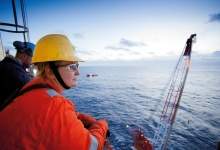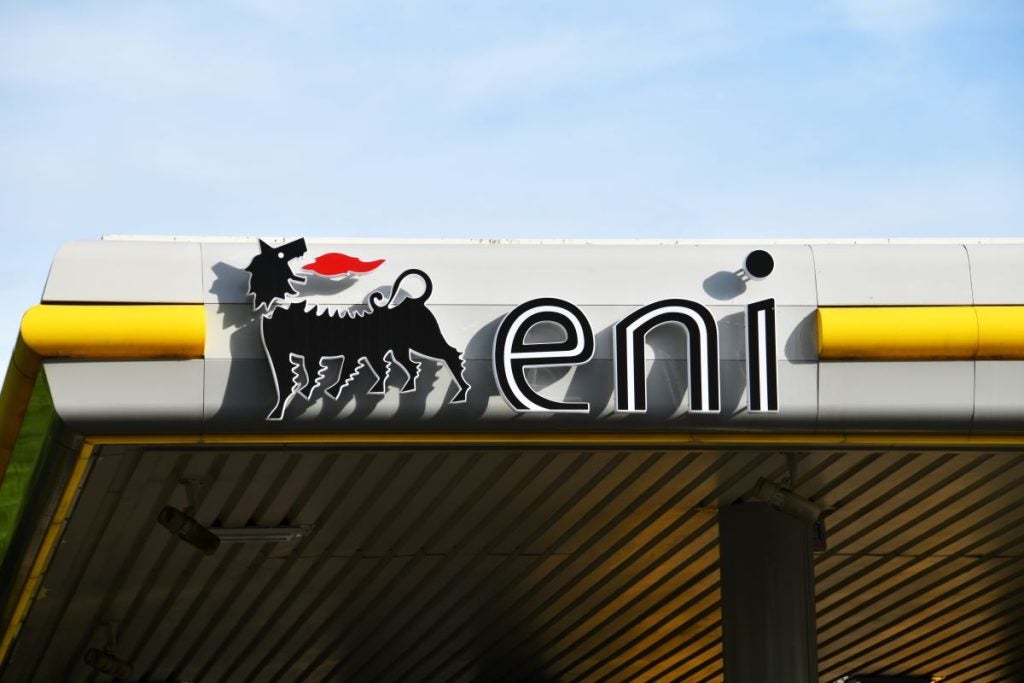

UK-headquartered BP has long been known as one of the biggest players in the offshore oil and gas industry. Originally founded in 1909, currently the company has operations in over 80 countries and employs some 85,900 members of staff. In 2013 BP was rated 14th in the Times Top 100 graduate employers, higher than any other oil and gas company.
Jon Tait, BP’s most-of-world recruitment director, is well placed then to discuss the challenges BP and other oil and gas companies face finding the right skilled people. Following on from Offshore Technology’s offshore skills roundtable discussion, where five other industry experts provided their insights on the skill currently in demand by industry, Tait gives his opinion in full. He discusses how critical he thinks the offshore oil and gas skills gap has become, how the industry is improving its appeal to women and what apprenticeship and trainee opportunities BP has to offer.
Heidi Vella: Has progress been made to plug the offshore oil and gas skills gap?
Jon Tait: A ‘talent shortage’ or a ‘skills gap’ has been emerging as the effects of the ‘great crew change’ are felt, and as the industry’s demand for experienced oil and gas professionals increases. The issue that we now face is that demand has outstripped supply. This is especially true in the case of engineers and scientists, who are the life-blood of the oil and gas sector. This is a trend that will continue in the medium term.
As an industry we have certainly seen great strides being taken, but there is a way to go before the problem is adequately addressed. Attracting and retaining the brightest and best talent is one of BP’s key corporate objectives and we have implemented various strategies and programmes to achieve this goal.
HV: Which areas of the world are most affected?
A year on, has the global skills gap improved? In a roundtable interview, six industry HR and recruitment insider give us their opinion.
How well do you really know your competitors?
Access the most comprehensive Company Profiles on the market, powered by GlobalData. Save hours of research. Gain competitive edge.

Thank you!
Your download email will arrive shortly
Not ready to buy yet? Download a free sample
We are confident about the unique quality of our Company Profiles. However, we want you to make the most beneficial decision for your business, so we offer a free sample that you can download by submitting the below form
By GlobalDataJT: The competition for talent is taking place on a global scale and isn’t limited to one part of the world. With skilled workers becoming increasingly more mobile and willing to relocate to progress in their career, finding the best candidates is a challenge the industry is facing across the world.
There are a number of global hot spots, in which skilled workers are in particular shortage. This can be seen particularly in countries that are rapidly developing their oil and gas industries. So, for example, in Angola there are 15 operators, all competing for talent, and this is creating one of the most competitive recruitment markets in the global oil and gas industry.
HV: Which particular skills are most sought after?
JT: Geoscience disciplines, such as geologists, geophysicists and geoscientists are some of the critical roles where the industry really sees a supply deficit. Additionally, BP is a leader in deep-water exploration and operations and individuals with deep-water experience are highly valued. These include subsea, drilling and completion engineers.
HV: What kind of training and qualifications do you look for in a prospective employee?
JT: At BP, we have a high entry standard, which is matched by industry-leading training and accredited development for our employees. We partner with leading industry bodies and educational institutions to ensure that BP employees receive the best training and development opportunities.
For example, graduates can join BP on the three-year Challenge Programme, which is designed to build practical experience and formal learning, while developing core and discipline knowledge.
When upstream employees graduate from the Challenge Programme they progress into BP’s eXcellence Programme. They are placed in a job that is intended to continue their professional development. The programme maps out the next seven years of that employee’s professional development with BP.
HV: What kind of attitude and personality best suits offshore oil and gas work?
JT: For someone working offshore at graduate level we typically look for intelligent, process-driven individuals, who are good at understanding complex issues and effectively identifying the critical points through logical thinking. Therefore, the challenge for the energy industry is to convince students with the necessary character traits that we offer a more compelling career than working in other professions.
At an experienced level, we look for team players who work well in collaboration with others and who have a can-do attitude. A focus on safety and safe and compliant operations is also a must-have character trait.
HV: Do you think the industry is improving its appeal to women?
JT: Looking at recruitment trends within BP, it would be fair to say the industry is increasingly appealing to women. We recruit talented women and around a third of our graduate hires are now female – up from a quarter a few years ago.
A priority for BP is to ensure we provide a supportive work environment for all of our employees. Both women and men are encouraged to seek out mentors that can support and guide them during their career. Additionally, BP provides a number of agile working options for employees, including time and place flexibility, which suits them and their families.
HV: What is the industry doing to attract school leavers and university undergraduates?
JT: At BP we run the Schools Link programme, in which BP employees go into schools to lead classroom activities and to mentor pupils. The main focus of this is to support schools in encouraging young people to study the STEM (science, technology, engineering and mathematics) subjects and consider a career that uses these skills. Part of the focus of the programme is to inspire young girls, providing female role models and giving them some awareness of the career opportunities available if they pursue these subjects. The programme has been running for over 40 years, now involving over one in 10 of BP’s UK staff and connecting BP employees with around 200 local schools.
Having participated in these sessions, I can say they really do have a positive impact upon the pupils. Their feedback is that the programme opens their eyes to the oil and gas industry and to how their classroom learning can apply in real world technical roles.
Like any job tenacity and perseverance go a long way, but what else does it take to become a specialist oil and gas recruiter?
At a graduate level, BP runs a number of initiatives that are intended to allow students to discover the numerous career opportunities that exist within our industry. So for example, we run Discovery Days in which students come into a BP office and have the opportunity to meet with BP employees, take part in knowledge development exercises and interact with our people. We offer hundreds of paid internships each year, either three or 12 months in duration, in which students can come and work at BP, getting hands-on experience and exposure to working in an operating environment.
We also run a student competition called the Ultimate Field Trip. Now in its fifth year, the competition sets a real-life energy challenge and teams of three students work together to solve the problem. The ultimate winners from each region come together for a two-week field trip at a BP location. This year winners from the US, UK, Canada, Trinidad and Tobago and Angola will come together in Alaska and Chicago, visiting our operations in both regions.
HV: Are you seeing an increase in people switching from other industries to oil and gas?
JT: We are seeing people with transferrable skills move into the oil and gas industry from sectors such as aeronautics, to give an example. We recognise the value of looking beyond the oil and gas industry and often find that expertise imported from other industries can be an asset and add to our capabilities as a company.
While there is a good pool of talent, the competition for that talent is higher than ever. This is not just from other engineering-based companies, but increasingly from banks, consulting firms and other leading companies, who also value the special attributes these candidates possess.
HV: Do you currently offer any training or apprenticeship schemes?
JT: BP’s Challenge Programme is a worldwide graduate training scheme for fresh graduates. Currently thousands of graduates are participating from the UK, US and as far afield as Malaysia and Azerbaijan. Additionally, each year we employ hundreds of trainee technicians globally. These include instrument technicians, mechanical technicians, electrical technicians and production technicians.


.gif)





